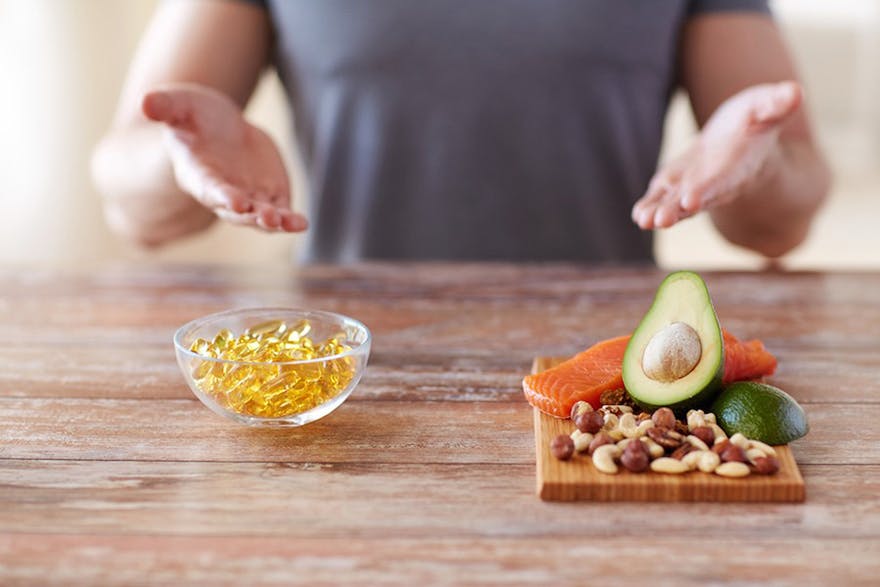Supplements
VITAMINS & MINERALS
10.21.2014

Ideally, you would get all your vitamins and essential minerals from your diet, although some of them, like vitamin E or D and calcium, may be hard to get even from a healthful diet. As a “health insurance,” and to fill known gaps in certain vitamins and essential minerals in the average US diet, I recommend the following supplements:
- Multivitamins/minerals: Take a multivitamin/mineral supplement with 100% of the Daily Value (DV) for most vitamins and essential minerals, keeping the following suggestions in mind:
- Iron: In general, men and postmenopausal women should take a multivitamin/mineral supplement without iron.
- Vitamin A: Look for a multivitamin/mineral supplement containing no more than 2,500 IU (750 mcg) of preformed vitamin A (usually labeled vitamin A acetate or vitamin A palmitate) and no more than 2,500 IU of additional vitamin A as beta-carotene. Smokers should not take supplemental beta-carotene.
- Vitamin C: Aim for a daily intake of at least 400 mg. Multivitamins/minerals usually provide 60 mg of vitamin C, and five servings of fruits and vegetables provide about 200 mg. A 250-mg supplement taken twice daily, or taking a single supplement of 500 mg or 1,000 mg, will ensure near-maximal plasma concentrations in healthy people.
- Vitamin D: Take 2,000 IU (50 mcg) of supplemental vitamin D daily. Most multivitamins/minerals contain 400 IU of vitamin D, and single-ingredient vitamin D supplements are available for additional supplementation. To ensure adequate body vitamin D status, aim for a serum 25-hydroxyvitamin D level of at least 80 nmol/L (32 ng/mL).
- Calcium: No multivitamin/mineral supplement contains 100% of the DV for calcium. If your total daily calcium intake doesn't add up to 1,000 mg, take an extra calcium supplement (combined with magnesium—see below) with a meal to make up the difference.
- Magnesium: No multivitamin/mineral supplement contains 100% of the DV for magnesium. If you don’t eat plenty of green leafy vegetables, whole grains, and nuts, you likely are not getting enough magnesium from your diet. If you add a magnesium supplement, take a combined supplement with calcium containing 133-250 mg of magnesium and 333-500 mg of calcium with a meal.
- Fish Oil: If you don't regularly consume fish, consider taking a two-gram fish oil supplement several times a week. If you are prone to bleeding or take anticoagulant drugs, consult your physician.
Lipoic Acid and L-Carnitine: Healthy adults over the age of 50 may consider a daily supplement of 200-400 mg of alpha-lipoic acid and 500-1,000 mg of acetyl-L-carnitine.
Disclaimer
This information is made available with the understanding that the author and publisher are not providing medical, psychological, or nutritional counseling services. The information is not intended as medical advice for individual problems and should not be used in place of a consultation with a competent health care or nutrition professional. Liability for individual actions or omissions based upon the information is expressly disclaimed.
Image Credits: Syda Productions/Shutterstock.com
Recommended Articles
The 5 Best Foods That Will Help Supercharge Your Brain
Amidst our busy schedule, it's important to retain our focus and memory. Resting alone is not...
Iron deficiency is a lot more common than you would think. A recent survey by SATA CommHealth(i...
Mars vs Venus: Understanding the His and Hers of Nutritional Needs
Mars vs Venus: Understanding the His and Hers of Nutritional Gaps Although their DNAs are...






